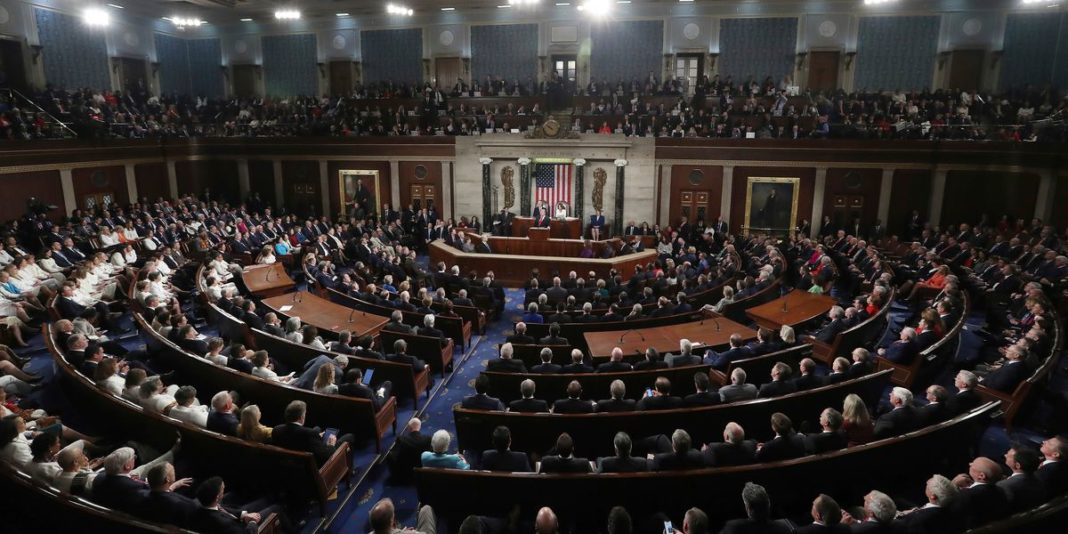A chastened president gave a great speech last night. But will it be enough?
Donald Trump had promised a State of the Union address that could bring the country together. Did he deliver one? It’s hard to say. His address was the most mellow hour of commentary he has ever delivered. The PR pros who urged him to be himself will be happy tonight. He spoke to all Americans, and did so effectively.
Against Trump, at least according to the narrative, stood an army of women, elected to Congress all wearing white to spite him. It didn’t quite work out the way it was supposed to. In fact, Trump challenged and trumped them on several occasions, compelling applause and even the some standing ovations.
President Trump gave a speech about America, about America’s virtues. He challenged us all to live up to the promise of our nation. He even scolded us, warning against the “politics of revenge, resistance, and retribution.” This might seem like a big lift for a presidential candidate who excelled at name-calling, but it is welcome nonetheless. Trump’s tone seemed to be new.
Maybe he was mellowed by his defeat in the recent government shutdown, but whatever it was, this is a Trump who works. More charming than usual, he even seemed to disarm the women in white at times. Celebrating the record number of women both in Congress and on the nation’s employment rolls was wise.
But as is usual, the main thrust of his message was restoring the nation to greatness. This has always been the trickiest, but most essential message Trump offers. It’s tricky because it assumes that at some point America stopped being great.
Last night, the president said, “I am asking you to choose greatness. No matter the trials we face, no matter the challenges to come, we must go forward together. We must keep America first in our hearts.” That’s a lot of “we’ from a guy who tends to prefer “I.” It’s welcome. It opens his playing field, and with that running room he was able to advance an agenda.
Trump did not budge much on illegal immigration, but also did not call for a national emergency on the border, at least not yet. In a somewhat shocking moment, Trump said he would like to see the largest legal immigration ever, which, should it turn into policy, would be quite a switch from his usual position.
Now he may be offering a different sort of deal. Instead of money for the wall, he may take the loss on that and instead offer an open government for the end of investigations. “If there is going to be peace and legislation,” said Trump, “there cannot be war and investigation. It just doesn’t work that way.” And of
The general tone of conciliation from Trump makes a lot of sense in this context. If the Robert Mueller special counsel investigation does end soon, with no serious findings that harm the president, then the next two years will be very different from the last two. It’s not just that Trump will be vindicated, but that he will be freed from playing that kind of defense. He will be able to offer an agenda to Democrats who are no longer able to pretend they are waiting for evidence of collusion, or whatever they were hoping for.
Charles Bukowski once wrote, “In the morning it was morning and I was still alive. Maybe I’ll write a novel, I thought, and then I did.” After last night’s speech, the best of his presidency, and maybe his life, Trump has a right to feel this way. Some kind of dawn may have broken for him. The gleaming white dresses of his adversaries did not so much hurt him as give him an opportunity for grace that he took.
This was a State of the Union that almost didn’t happen — or that almost happened at a rally, or in the Oval Office, or a gas station on the southern border. In the end, it was good that he waited for the invitation and the chance to come to Nancy Pelosi’s House with an offer of peace.
Will she take the offer? Maybe, maybe not, but there is a lot of room in between. If this is the Donald Trump we see for the next two years, two important things might happen. First, he might get some things done. Second, he just might get re-elected.





